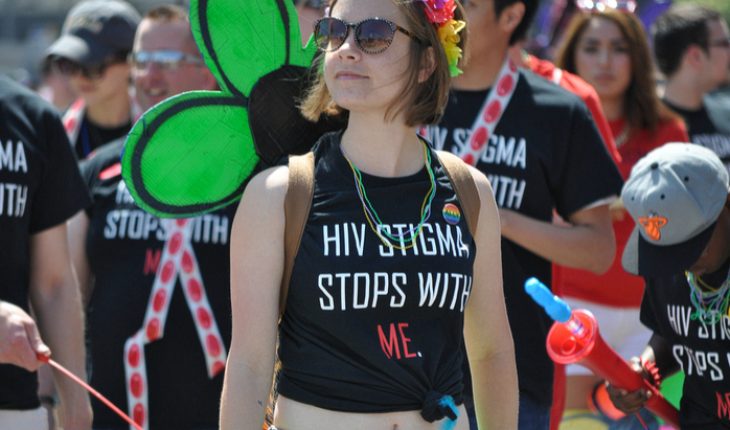I’ve always advocated that people should be open about their HIV status, not least because it helps them access the support and help they may need, but also because it allows everyone else to see what it means to live with HIV today. Since my diagnosis, I have become a stronger person and I’ve paid more attention to my health and wellbeing than ever before. I’ve found a job I love with an organisation that works for people with HIV and those affected by poor sexual health. I take treatment – just one pill a day – and my viral load is undetectable, meaning that I cannot transmit the virus to anyone else. People with HIV who are effectively treated by medication can live a normal life span. We’re healthy, successful and thriving and I hope to share my past and present to challenge outdated perceptions about HIV that many people still have.
People with HIV who are effectively treated by medication can live a normal life span. We’re healthy, successful and thriving and I hope to share my past and present to challenge outdated perceptions about HIV that many people still have.
We do still need to challenge perceptions and this starts in schools. As part of the Positive Voices team at the Terrence Higgins Trust, I visit schools in London and share my story. It’s a way of putting a personal face to HIV. The reception we get varies a lot from school to school and many kids really don’t know much about it at all. It’s not like the late 1980s or early 1990s, when the message was ‘Don’t die of ignorance’ which everyone knew as their frame of reference. Today, a lot of younger people don’t really know much about the infection at all. HIV may be mentioned in biology lessons, but it is not always touched up in sex education classes. This is something we hope to change, along with the guidance for sex education which has not been updated since 2000.
The message that people living with HIV who are on effective – like me – can’t pass it on is one that we really need to underscore too. Studies have shown that people who are having effective treatment and have been treated for at least six months, cannot pass the viral infection onto sexual partners.
The message that people living with HIV who are on effective – like me – can’t pass it on is one that we really need to underscore too. Studies have shown that people who are having effective treatment and have been treated for at least six months, cannot pass the viral infection onto sexual partners.
I take Eviplera, which is a one-a-day pill and there are more drugs coming to market all the time. These drugs have few, if any, side effects, very different from the days of AZT which was extremely toxic for many people. I do suffer from some stomach issues, but I think this is more to do with the initial infection, rather than the drugs I am taking. And I’m much healthier because I know I have HIV and protect my immune system with treatment.
And there are also now prophylactic drugs which you take to prevent you from becoming infected, which Terrence Higgins Trust and other HIV organisations have long-campaigned to be made available. Earlier this year, Scotland became the first nation to make Pre-Exposure Prophylaxis (PrEP) available on the NHS in the UK, while both England and Wales have now made it available through trials. But we now need to make sure PrEP finds a long-term, sustainable home on the NHS and that no-one at risk of HIV could benefit.
This week is National HIV Testing Week, supported by the Terrence Higgins Trust and other charities, which promotes testing of HIV to vulnerable population groups.
- What it means to live with HIV - 23rd November 2017






